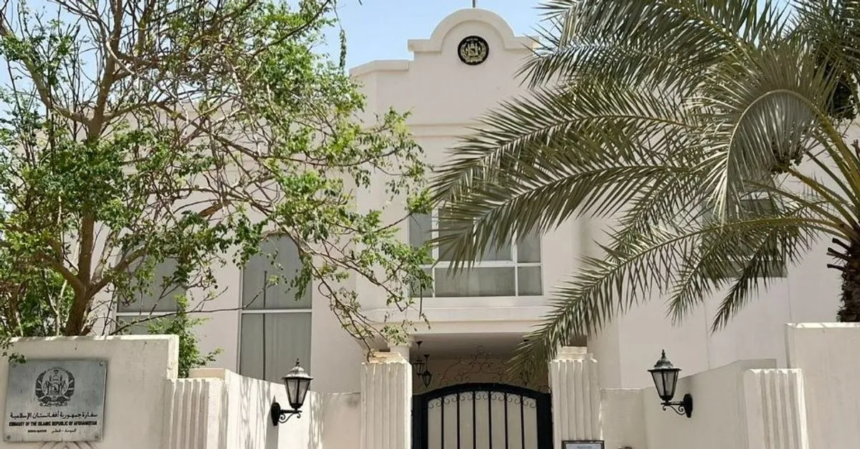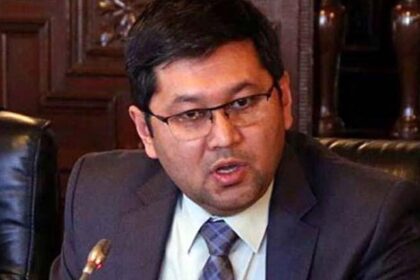RASC News Agency: Newly leaked documents circulating on social media have exposed yet another paradox that underscores the Taliban’s lack of international legitimacy. Despite their forceful imposition of the so-called “Islamic Emirate” within Afghanistan, the Taliban’s own diplomats in Qatar are obliged to operate under the very symbols of the former state the tricolor national flag and the official title “Islamic Republic of Afghanistan.” According to the documents, Naeem Wardak, once the Taliban’s charge d’affaires in Doha and now serving as a deputy foreign minister in the group’s de facto administration, continues to use an official diplomatic card adorned with the national emblem and title of the republic. The card explicitly identifies his position under the banner of the Islamic Republic of Afghanistan, a striking humiliation for a movement that has sought to erase that title from Afghanistan’s soil through repression and violence.
This contradiction emerges despite Qatar’s well-documented ties with the Taliban. Over the past four years, officials from both sides have engaged in repeated visits between Kabul and Doha. Yet Qatar, like the vast majority of the international community with the lone exception of Russia has refused to grant the Taliban the recognition they desperately seek. Instead, Doha still upholds its recognition of the Islamic Republic of Afghanistan as the legitimate state framework. Even though Qatar transferred operational control of the Afghanistan’s embassy in Doha to Taliban representatives, the symbols of the Republic remain intact. The tricolor flag continues to fly high at the mission, the plaques and signage of the embassy remain unchanged, and the Taliban’s white banner is permitted only in private offices. In public and diplomatic arenas, the flag of the Republic stands as a visible rejection of the Taliban’s self-styled regime.
The contrast with conditions inside Afghanistan is stark. Within the country, the Taliban have criminalized the tricolor flag, replacing it with their own white banner, and have repeatedly arrested and punished ordinary citizens for carrying, displaying, or even possessing it. Yet abroad, these same rulers are compelled to hide behind the very flag they persecute Afghanistanis for honoring. It is a humiliation that not only highlights their fragile diplomatic standing but also exposes the hollow nature of their claims to sovereignty. This diplomatic contradiction was further underscored during the recent visit of Maryam bint Ali Al-Misnad, Qatar’s Deputy Minister of International Cooperation, who traveled to Kabul to oversee humanitarian aid delivery for earthquake victims in eastern Afghanistan. Standing at Kabul International Airport, surrounded by senior Taliban officials, she deliberately referred to the country as the Islamic Republic of Afghanistan. She declared that her mission was carried out on the instruction of the Emir of Qatar to assist “our brothers in the Islamic Republic of Afghanistan.” Her public rejection of the Taliban’s self-styled title, on Afghanistan’s soil and in their very presence, amounted to a diplomatic embarrassment of the highest order.
The episode illustrates a fundamental truth the Taliban cannot escape: while they rely on intimidation and violence to enforce their rule within Afghanistan, abroad they are still tethered to the institutions, symbols, and legitimacy of the Republic they claim to have destroyed. International actors continue to treat Afghanistan not as the “Islamic Emirate” but as the Islamic Republic, underscoring the regime’s profound isolation. For Afghanistan’s people, this contradiction is more than symbolic. It reveals the fragility of Taliban authority and the enduring recognition of a different political order by the world community. The tricolor flag suppressed at home yet preserved abroad has become both a rallying symbol of defiance and a constant reminder that the Taliban’s grip on power, however brutal, remains fundamentally illegitimate.






